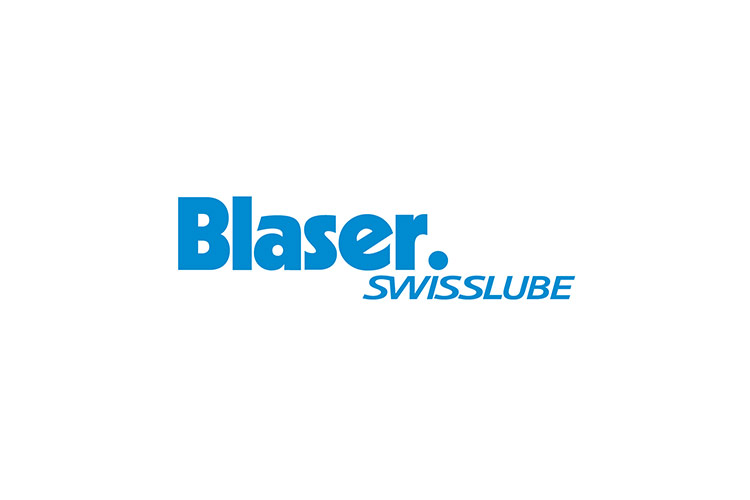Productivity, economic efficiency and machining quality are the key to success in the metalworking industry. The company Sphinx Werkzeuge AG strived to optimize these factors at its production site in Porrentruy. For this purpose, the tool manufacturer consulted the metalworking fluid experts of Blaser Swisslube.
Sphinx Werkzeuge AG is a leading company for the manufacture and distribution of precision tools for the machining industry. Among its customers are well-known companies active in industry and medical technology, which rely on the quality and long-standing experience of the company. The product range includes micro drills and micro endmills that extend down to a few hundredths of a millimeter in diameter as well as drilling and special tools that are manufactured to customers’ specifications. The company operates two production sites in Switzerland – in Derendingen (Solothurn) for the micro tools and another in Porrentruy (Jura), where tools with larger diameters are manufactured.
The four factors machine, grinding wheel, material and metalworking fluid have a great influence on the grinding process. The company management was aware of this and addressed the issue at the beginning of 2013, ultimately deciding to review the current situation at the site in Porrentruy. One objective was to determine the efficiency of the production; another one dealt with the question of whether the processes and operations still complied with the latest technology. The company management reasoned that there could be opportunities for potential optimization. Blaser Swisslube was contracted to examine this question, but also to study any influencing factors. The metalworking fluid manufacturer from the Emmental has comprehensive know-how in this area and, by working closely together with its partners, offers a holistic review of the machining operations and processes. The goal always lies in the optimization of productivity, economic efficiency and machining quality so that partners are able to obtain the fullest possible use from their machinery. Rico Pollak, the Head of Grinding
Technology at Blaser Swisslube, remembers the initial discussions at the plant in Porrentruy: “First, we had to gain the trust of the plant employees. We questioned the manufacturing processes that were used up to that time and searched for optimization opportunities at every level. We knew that the workshop employees would be rather skeptical about our questions and inquiries.” But once the grinding specialists at Sphinx recognized the possibilities as well as the benefits of the co-operation with Blaser, the ice was broken. “Thanks to the cooperation with the Blaser employees, we achieved a lot more than we expected and the interaction was very pleasant,” explains Martin Arnold, Head of Technology / R&D at Sphinx Werkzeuge AG.
During the test phase, one of the tool grinding machines was filled with the grinding oil Blasogrind HC 5-56. The grinding oil, based on a synthetic oil (hydrocrack), was perfectly suited to the grinding operations and materials used at Sphinx. Besides high removal rates, the benefits of the product are, among others, its machine and operator compatibility, its low misting properties as well as the long-term stability of the oil. Furthermore, Blasogrind was designed in such a way that only a negligible amount of cobalt is leached.
The goals set by the company management consisted of an increase of productivity as well as maintaining the same level of process safety – meaning accuracy, surface quality as well as the prevention of microcracks. During the test phase, the refilled machine was used to produce carbide drills with a 5 mm diameter. Individual operations included the grinding of flutes, thinning, free grinding as well as four facet grinding. Thanks to the optimal grinding oil, it was possible to increase the feeds up to 40% for some operations. This had an immediate effect on productivity by yielding a higher output.
After the conclusion of the test phase, the defined goals were not just met, but exceeded. Productivity was increased, leading to 12% savings on the overall production time. Likewise, the surface quality did not just remain the same, but saw a noticeable improvement. A more even surface structure of the manufactured parts was the result. The switch of the metalworking fluid resulted in a further measurable added value because the consumption of metalworking fluid was reduced due to low mist. “Overall, the savings achieved by the increase in productivity and the reduction of metalworking fluid exceeded the costs of the fluid many times over,” according to Rico Pollak.
“For us, the jointly and successfully executed project yielded an increase of productivity for our production in Porrentruy. Furthermore, the switch to Blasogrind led to an improved air quality in the production hall,” said JeanMarc
Salomon, Ing. HES, Director of Porrentruy, Sphinx Werkzeuge AG. “Only the application of the optimal metalworking fluid, harmonized with the machining operations of the partner, will turn the metalworking fluid into a liquid tool and significantly influence productivity, economic efficiency as well as the machining quality,” explains Rico Pollak.
The tool-grinding machines in Porrentruy were successively switched to Blasogrind. At the present time, tests are being planned to optimize the metalworking fluid at the production site in Derendingen. Therefore, a continued cooperation of the two companies is obvious.


